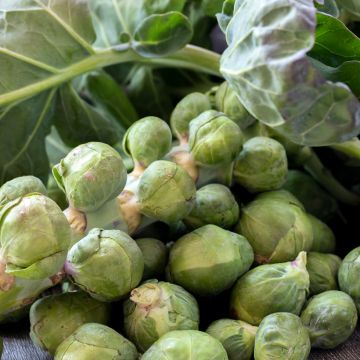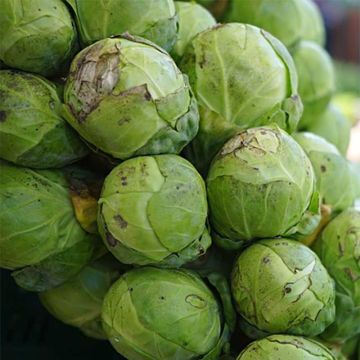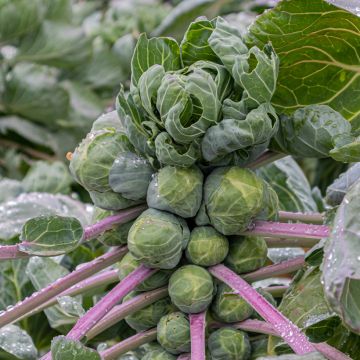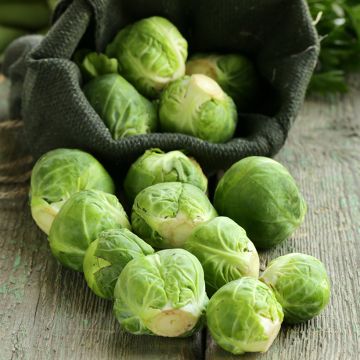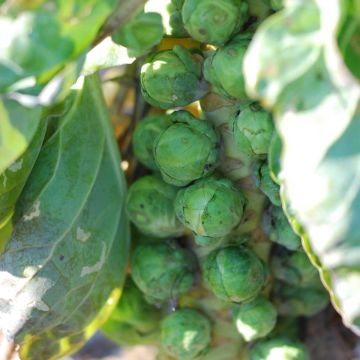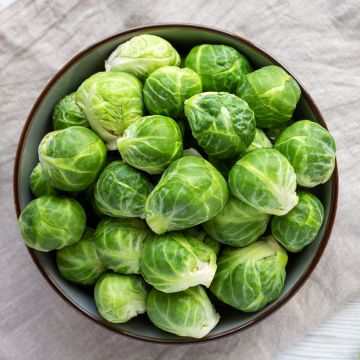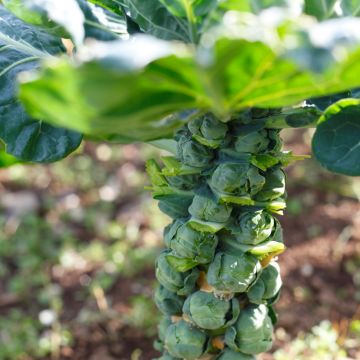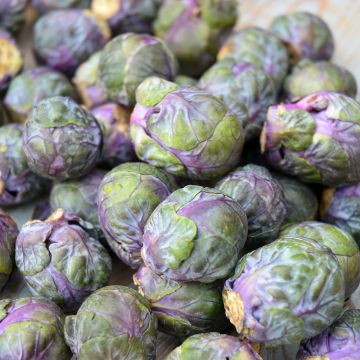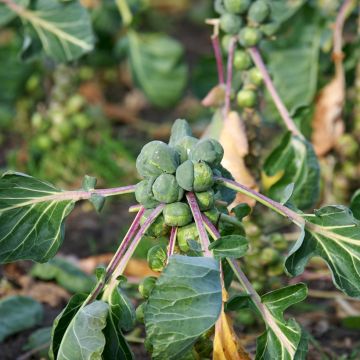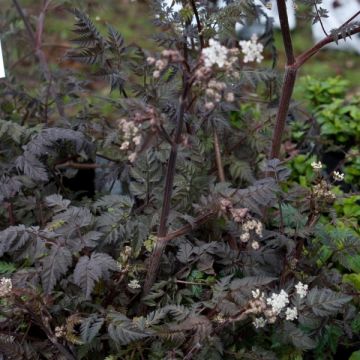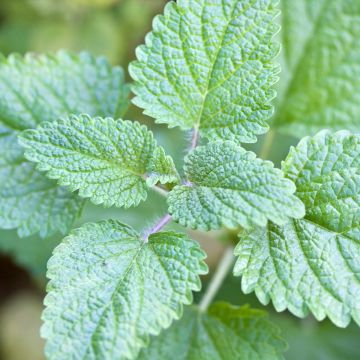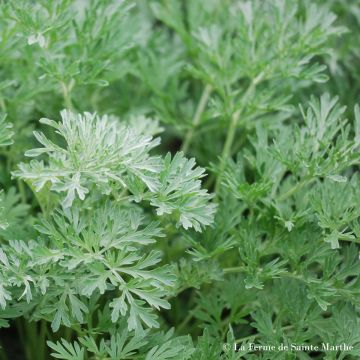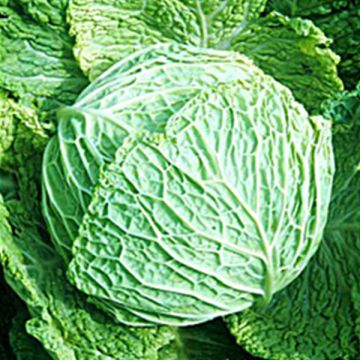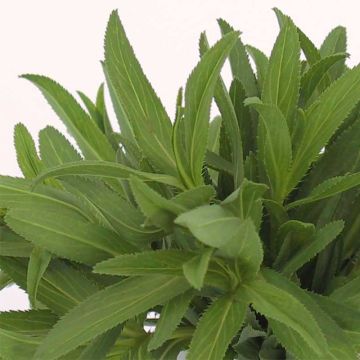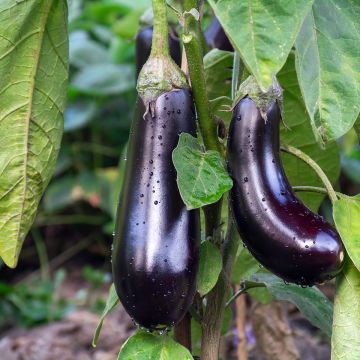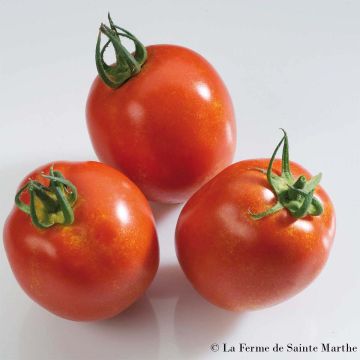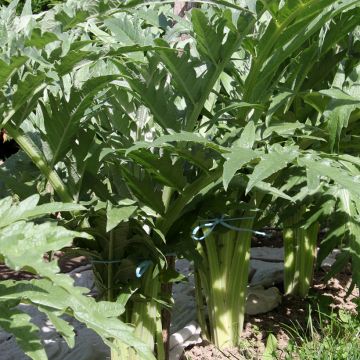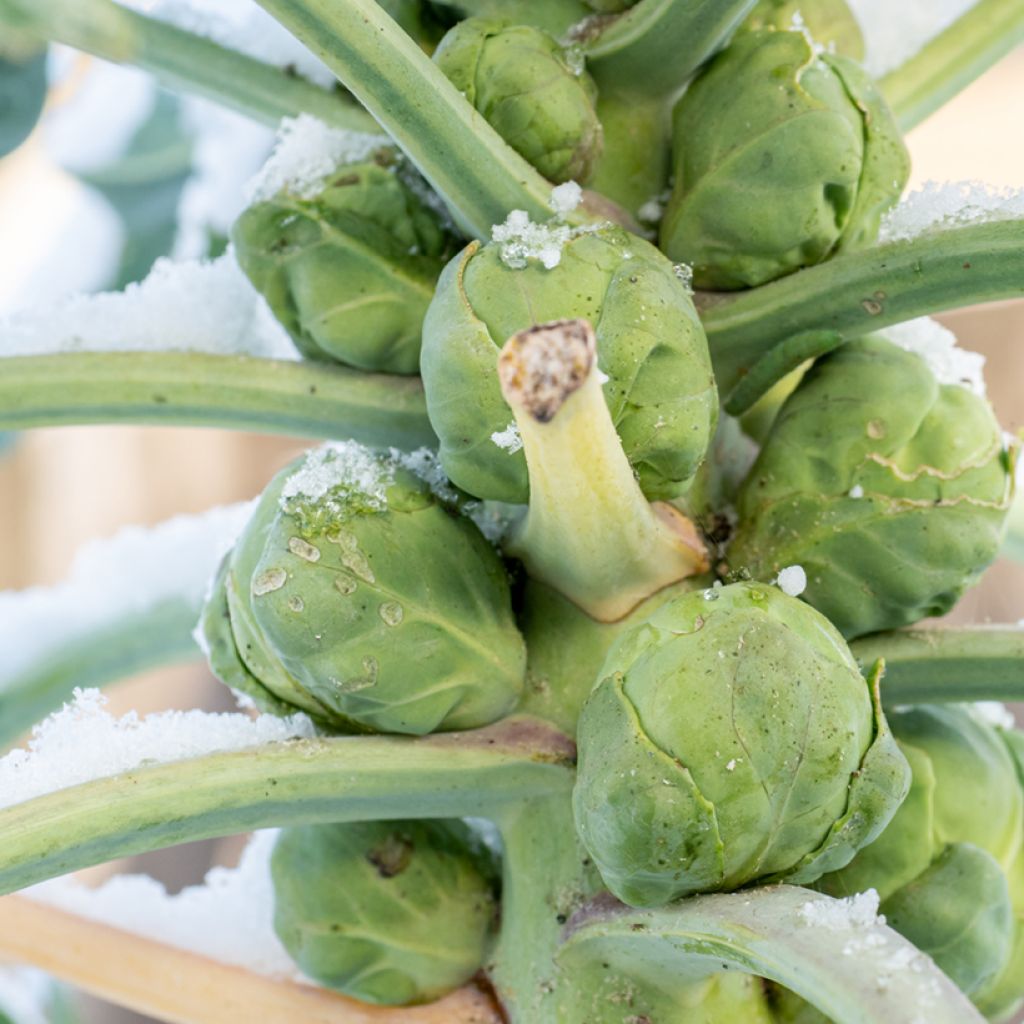

Brussels Sprout Bright F1 - Brassica oleracea gemmifera
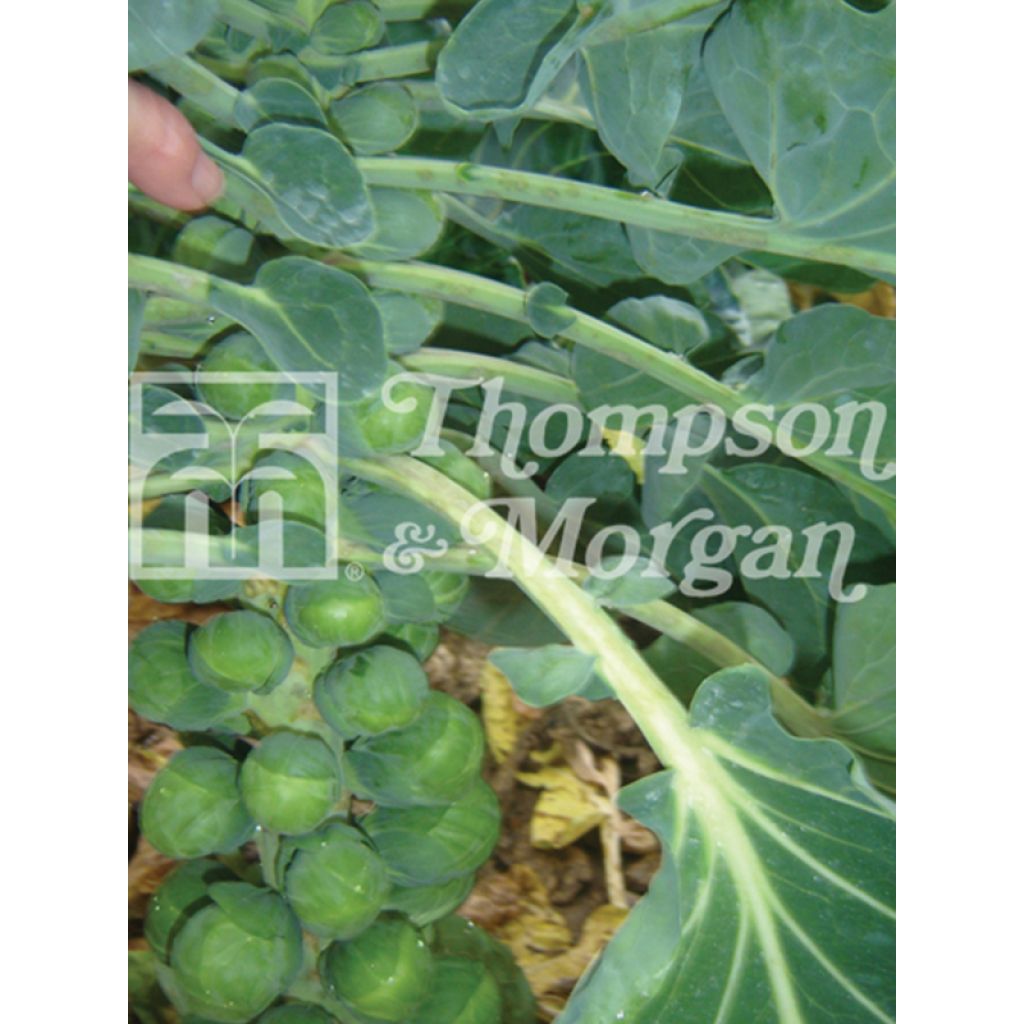

Brussels Sprout Bright F1 - Brassica oleracea gemmifera
Brussels Sprout Bright F1 - Brassica oleracea gemmifera
Brassica oleracea gemmifera Bright F1
Brussels Sprout
After an initial faulty delivery (seeds crushed in the package), a second item was sent in good condition.
Patrick G., 02/06/2018
Special offer!
Receive a €20 voucher for any order over €90 (excluding delivery costs, credit notes, and plastic-free options)!
1- Add your favorite plants to your cart.
2- Once you have reached €90, confirm your order (you can even choose the delivery date!).
3- As soon as your order is shipped, you will receive an email containing your voucher code, valid for 3 months (90 days).
Your voucher is unique and can only be used once, for any order with a minimum value of €20, excluding delivery costs.
Can be combined with other current offers, non-divisible and non-refundable.
Why not try an alternative variety in stock?
View all →This plant carries a 6 months recovery warranty
More information
We guarantee the quality of our plants for a full growing cycle, and will replace at our expense any plant that fails to recover under normal climatic and planting conditions.
Description
The Bright F1 Brussels Sprout is an early and resistant variety that produces tasty little sprouts, well spaced on the stem for easy harvesting. Sowing from March to April for a harvest from September to December.
The Brussels Sprout is a vegetable whose axillary buds are consumed, forming small heads also called "buttons". This biennial vegetable, cultivated as an annual, belongs to the large family of Brassicaceae (formerly Cruciferae). It is sometimes called "Choumette" in the North of France and bears the Latin name Brassica oleracea gemmifera. Latin enthusiasts will appreciate the name "Gemmifera" which refers to precious stones.
Originating, unsurprisingly, from Belgium, this sprout is a hybrid developed in the 14th century by market gardeners from Saint-Gilles (a municipality in the Brussels area), concerned with increasing their productivity. Indeed, growing vertically, Brussels sprouts take up little space on the ground and thus allow for abundant harvests in a minimum of space.
An autumn and winter vegetable par excellence, Brussels sprouts have a mild, slightly sweet, and very comforting flavor. Carefully cooked, their delicate taste pairs well with bacon, lard, smoked pork belly, as well as chestnuts. They can be eaten boiled, sautéed, braised, or even gratinated. Quickly steamed, they are also excellent cold in salads. They are a vegetable rich in fiber, antioxidants, and vitamins C and B.
Brussels sprouts are a much less demanding vegetable than the majority of cabbages. They thrive in the sun and in moderately rich soil, especially in nitrogen. Soil that is too generously fertilized would result in the production of small, open, or burst heads.
Note: This variety is labeled F1 for "F1 hybrid" because it is a variety resulting from the cross-breeding of carefully selected parents to combine their qualities. This results in a variety that can be particularly flavorful and/or early while being resistant to certain diseases. Sometimes criticized or wrongly associated with GMOs, F1 hybrid seeds are interesting both for their uniformity and their resistance, but unfortunately, their qualities do not pass on to subsequent generations: it will therefore not be possible to recover the seeds for later sowing.
Harvest: Brussels sprouts are harvested starting from the bottom of the stem by cutting off the small heads with a knife.
Storage: Brussels sprouts can be stored for 3 to 4 days in the vegetable compartment of the refrigerator. They can also be frozen very well after being blanched for 3 to 5 minutes in salted boiling water.
Gardener's tip: The main enemy of cabbage is the Cabbage White butterfly (Pieris brassicae), a pretty creamy white butterfly with small black spots that wakes up from April-May to wreak havoc throughout the summer by devouring its leaves. Don't be caught off guard and opt for prevention by installing an insect-proof net tightly on market garden hoops. These nets are easy to set up and reusable to protect, for example, your carrot and leek crops.
Report an error about the product description
Harvest
Plant habit
Foliage
Botanical data
Brassica
oleracea
gemmifera Bright F1
Brassicaceae
Brussels Sprout
Cultivar or hybrid
Annual
Other Brussels sprout seeds
View all →Planting and care
Sowing:
The germination temperature of Bright F1 Brussels Sprout is between 7 and 20° and takes about 14 days.
It is sown from March to April for a harvest from September to December.
You can either sow directly in place or prepare seedlings that will later be transplanted to their final position in the garden.
Seedling preparation: In a heated greenhouse at the end of winter, in a cold greenhouse or in a nursery in the garden for the rest of the year, sow the seeds at a depth of 1 cm (0in) in good seed compost. Lightly cover with compost or vermiculite. Remember to keep the substrate moist but not waterlogged!
When the young plants appear strong enough to be handled, transplant them into pots if necessary and, for seeds sown in a heated greenhouse, gradually acclimatize them to cooler temperatures before transplanting them to the garden when there is no longer any risk of frost.
Direct sowing: In properly amended and finely worked soil, create furrows with a depth of one centimeter, spaced 65 cm (26in) apart. Sow the seeds and cover them with a thin layer of fine soil. When the seedlings are well developed, thin them out, leaving only one plant every 65 cm (26in) or so.
Cultivation:
Brussels Sprouts are less demanding than most cabbage varieties. They thrive in moderately rich soil, especially in nitrogen. Excessively fertile soil could result in the production of small, open, or burst sprouts.
They are not very tolerant of soil pH, which should be between 5.6 and 6.5. In acidic soil, it is necessary to gradually raise the pH by adding calcium in the form of Dolomite or Lime.
Brussels Sprouts, like all cabbages, are quite susceptible to diseases such as Clubroot and pests (Cabbage White Butterfly, Cabbage Fly, Flea Beetle, Cabbage Midge, etc). It is very important, for this crop, to practice crop rotation.
Seedlings
Care
Intended location
-
, onOrder confirmed
Reply from on Promesse de fleurs
Similar products
Haven't found what you were looking for?
Hardiness is the lowest winter temperature a plant can endure without suffering serious damage or even dying. However, hardiness is affected by location (a sheltered area, such as a patio), protection (winter cover) and soil type (hardiness is improved by well-drained soil).

Photo Sharing Terms & Conditions
In order to encourage gardeners to interact and share their experiences, Promesse de fleurs offers various media enabling content to be uploaded onto its Site - in particular via the ‘Photo sharing’ module.
The User agrees to refrain from:
- Posting any content that is illegal, prejudicial, insulting, racist, inciteful to hatred, revisionist, contrary to public decency, that infringes on privacy or on the privacy rights of third parties, in particular the publicity rights of persons and goods, intellectual property rights, or the right to privacy.
- Submitting content on behalf of a third party;
- Impersonate the identity of a third party and/or publish any personal information about a third party;
In general, the User undertakes to refrain from any unethical behaviour.
All Content (in particular text, comments, files, images, photos, videos, creative works, etc.), which may be subject to property or intellectual property rights, image or other private rights, shall remain the property of the User, subject to the limited rights granted by the terms of the licence granted by Promesse de fleurs as stated below. Users are at liberty to publish or not to publish such Content on the Site, notably via the ‘Photo Sharing’ facility, and accept that this Content shall be made public and freely accessible, notably on the Internet.
Users further acknowledge, undertake to have ,and guarantee that they hold all necessary rights and permissions to publish such material on the Site, in particular with regard to the legislation in force pertaining to any privacy, property, intellectual property, image, or contractual rights, or rights of any other nature. By publishing such Content on the Site, Users acknowledge accepting full liability as publishers of the Content within the meaning of the law, and grant Promesse de fleurs, free of charge, an inclusive, worldwide licence for the said Content for the entire duration of its publication, including all reproduction, representation, up/downloading, displaying, performing, transmission, and storage rights.
Users also grant permission for their name to be linked to the Content and accept that this link may not always be made available.
By engaging in posting material, Users consent to their Content becoming automatically accessible on the Internet, in particular on other sites and/or blogs and/or web pages of the Promesse de fleurs site, including in particular social pages and the Promesse de fleurs catalogue.
Users may secure the removal of entrusted content free of charge by issuing a simple request via our contact form.
The flowering period indicated on our website applies to countries and regions located in USDA zone 8 (France, the United Kingdom, Ireland, the Netherlands, etc.)
It will vary according to where you live:
- In zones 9 to 10 (Italy, Spain, Greece, etc.), flowering will occur about 2 to 4 weeks earlier.
- In zones 6 to 7 (Germany, Poland, Slovenia, and lower mountainous regions), flowering will be delayed by 2 to 3 weeks.
- In zone 5 (Central Europe, Scandinavia), blooming will be delayed by 3 to 5 weeks.
In temperate climates, pruning of spring-flowering shrubs (forsythia, spireas, etc.) should be done just after flowering.
Pruning of summer-flowering shrubs (Indian Lilac, Perovskia, etc.) can be done in winter or spring.
In cold regions as well as with frost-sensitive plants, avoid pruning too early when severe frosts may still occur.
The planting period indicated on our website applies to countries and regions located in USDA zone 8 (France, United Kingdom, Ireland, Netherlands).
It will vary according to where you live:
- In Mediterranean zones (Marseille, Madrid, Milan, etc.), autumn and winter are the best planting periods.
- In continental zones (Strasbourg, Munich, Vienna, etc.), delay planting by 2 to 3 weeks in spring and bring it forward by 2 to 4 weeks in autumn.
- In mountainous regions (the Alps, Pyrenees, Carpathians, etc.), it is best to plant in late spring (May-June) or late summer (August-September).
The harvesting period indicated on our website applies to countries and regions in USDA zone 8 (France, England, Ireland, the Netherlands).
In colder areas (Scandinavia, Poland, Austria...) fruit and vegetable harvests are likely to be delayed by 3-4 weeks.
In warmer areas (Italy, Spain, Greece, etc.), harvesting will probably take place earlier, depending on weather conditions.
The sowing periods indicated on our website apply to countries and regions within USDA Zone 8 (France, UK, Ireland, Netherlands).
In colder areas (Scandinavia, Poland, Austria...), delay any outdoor sowing by 3-4 weeks, or sow under glass.
In warmer climes (Italy, Spain, Greece, etc.), bring outdoor sowing forward by a few weeks.






























